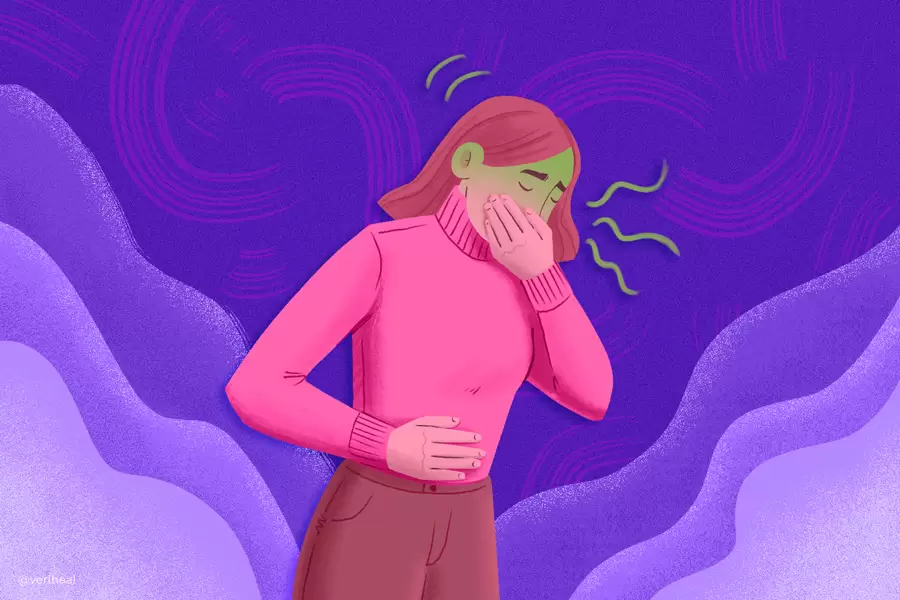Introduction
Cannabis, a plant with a long history of medicinal and recreational use, has gained significant attention for its potential effects on appetite and nausea. For many, the stereotypical image of a cannabis user involves indulging in a hearty meal after consuming the herb. However, the relationship between cannabis, hunger, and nausea is multifaceted and varies from person to person.
The Munchies Phenomenon:
One of the most well-known effects of cannabis is the onset of what is known as “the munchies.” This phenomenon refers to an increased appetite and craving for food, often leading individuals to consume more than they would under normal circumstances. The reason behind the munchies lies in the interaction between cannabinoids, such as THC (tetrahydrocannabinol), and the body’s endocannabinoid system.
The endocannabinoid system plays a crucial role in regulating various physiological processes, including appetite and digestion. When THC interacts with cannabinoid receptors in the brain, it can stimulate the release of hunger-inducing hormones and enhance the sensory experience of taste and smell, making food more appealing.
Is Cannabis Good for Nausea?
While the munchies are well-documented in recreational cannabis use, the medicinal benefits of cannabis in alleviating nausea cannot be overlooked. Cannabis has shown promise in helping individuals undergoing chemotherapy, dealing with chronic pain, or suffering from certain medical conditions that induce nausea.
The anti-nausea effects of cannabis are attributed to both THC and CBD (cannabidiol), among other cannabinoids. These compounds interact with the body’s endocannabinoid system to modulate the release of neurotransmitters and regulate nausea-inducing signals in the brain.
THC Dominant Strains
Cannabis strains that are high in THC are often associated with an increase in appetite, commonly referred to as the “munchies.” This effect is thought to be mediated through the activation of CB1 receptors in the brain, particularly in the hypothalamus, which plays a role in regulating hunger and satiety. Indica-dominant strains, which tend to have higher THC levels, are often reported to have stronger appetite-stimulating effects than sativa-dominant strains.
Sativa-dominant strains are often associated with uplifting and energetic effects. While sativa strains may not be as strongly linked to the traditional “munchies” effect as indica strains, some users may still experience an increase in appetite.
CBD Dominant Strains
On the other hand, CBD, which is non-psychoactive, does not seem to have the same appetite-stimulating effects as THC. In fact, some studies suggest that CBD may have appetite-suppressant properties. Strains that are high in CBD and low in THC may be less likely to induce the munchies.
Balanced THC/CBD Strains
Some strains are bred to have a more balanced ratio of THC to CBD. The interaction between these two cannabinoids, along with other compounds present in the cannabis plant, can influence the overall effects on appetite. Balanced strains may offer a more moderate and controlled impact on hunger.
It’s important to note that individual responses to cannabis can vary, and factors such as dosage, tolerance, and personal physiology play a role in how a person experiences the effects on appetite. Additionally, while cannabis may stimulate appetite in some individuals, it does not necessarily lead to unhealthy eating habits, and its impact on overall health can depend on various factors.
Appetite Stimulation:
Positive Effects
THC, the psychoactive compound in cannabis, is known to stimulate appetite. This effect, commonly referred to as the “munchies,” can be beneficial for individuals experiencing reduced appetite due to medical conditions, such as cancer or HIV/AIDS, or as a side effect of certain medications or treatments.
Medical Applications
In some medical contexts, healthcare providers may prescribe or recommend cannabis to help patients combat nausea, increase appetite, and maintain body weight.
Weight Gain and Metabolic Considerations:
Positive: For individuals struggling with weight loss due to medical conditions, cannabis-induced appetite stimulation may contribute to weight gain.
Negative: On the flip side, excessive consumption of calorie-dense foods during cannabis-induced cravings could potentially lead to unhealthy weight gain. It’s essential for individuals to be mindful of their dietary choices.
CBD and Appetite:
Unlike THC, CBD (cannabidiol), another major cannabinoid in cannabis, is generally not associated with the same appetite-stimulating effects. Some studies even suggest that CBD may have appetite-suppressant properties.
Individual Variability:
People react differently to cannabis, and the impact on appetite can vary. Factors such as an individual’s tolerance, sensitivity to THC, and the specific strain of cannabis consumed all play a role in determining the extent of appetite stimulation.
Dosage Matters:
Moderation: The dose of THC consumed can influence the degree of appetite stimulation. Low to moderate doses may produce the desired effects, while high doses could lead to more intense cravings and potentially unwanted side effects.Underlying Health Conditions:
Medical Supervision: Individuals with underlying health conditions, especially those affecting metabolism or appetite regulation, should use cannabis under the guidance of a healthcare professional. This is particularly important for individuals with eating disorders or metabolic disorders.
Balancing Risks and Benefits:
Risk of Overconsumption: While cannabis can be used to address specific medical issues related to appetite, it’s crucial to balance potential benefits with the risk of overconsumption and associated health concerns.
Nausea
Anti-Nausea Effects:
THC (tetrahydrocannabinol), the psychoactive compound in cannabis, has been found to have antiemetic properties. This has led to its use in alleviating nausea and vomiting associated with chemotherapy in cancer patients and in managing nausea in other medical conditions.
Individual Responses:
Responses to cannabis can vary widely among individuals. While some may experience relief from nausea, others may not respond as positively, and in some cases, cannabis use may exacerbate nausea or induce discomfort.
Dosage and Cannabinoid Content:
The dosage of THC and other cannabinoids in cannabis products can significantly impact their effects on nausea. Lower doses may be more effective for some individuals, and the ratio of THC to CBD may also influence the outcomes.
Delivery Method:
The method of cannabis consumption can affect its anti-nausea effects. Smoking or vaporizing cannabis provides a rapid onset of action, which can be beneficial in acute situations. However, other methods such as edibles or tinctures may have a more prolonged effect.
Combination with Other Therapies
Cannabis may be used in conjunction with other antiemetic medications or therapies. The combination of treatments can be tailored to the individual’s needs.
Underlying Health Conditions:
Nausea can be a symptom of various underlying health conditions. Before using cannabis for nausea relief, it’s important to identify and address the root cause of the nausea with the guidance of a healthcare professional.
Legal Considerations:
The legal status of cannabis varies globally and within different regions. Individuals using cannabis for medicinal purposes should be aware of and adhere to local laws and regulations.
Potential Side Effects:
Cannabis, especially THC-rich strains, can have cognitive side effects, including impaired memory and concentration. Individuals using cannabis for nausea should be mindful of these potential side effects.
Patient-Specific Considerations:
Healthcare professionals may develop individualized treatment plans for patients using cannabis for nausea, considering factors such as the patient’s overall health, medical history, and response to treatment.
Research and Evidence:
Research on the therapeutic use of cannabis, including its antiemetic effects, is ongoing. Individuals considering cannabis for nausea relief should stay informed about the latest scientific findings.



